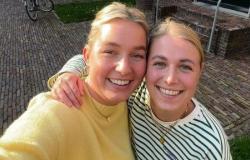The best medicine against the healthcare crisis is undoubtedly prevention. Healthcare can only survive if people start living healthier lives. But how do you get people to that point? DrHealthy thinks it has a solution.
“Look, here you can see that I ate an energy drink and a chocolate bar.” Jelle de Rijke from Rolde shows a few photos on his phone. The graphs are of his blood sugar level. It is nice and stable, both during the day and at night. Sometimes you see it go up a bit, when De Rijke is exercising. “I really wanted to shake up the line for once. Then a small unhealthy snack is enough. It turns red and afterwards you see that there will be hours of restless peaks to process all that sugar. In this case, that led to poorer sleep.”
Jelle de Rijke is the technological brain of DrHealthy, a platform that was conceived and developed by interventional radiologist Kai Yiu Ho, with support from financing expert Harold Nanninga from Groningen. The app immediately shows people the effects of a healthier lifestyle and supports them in their pursuit of better health. It works, many people have already noticed.
Real-time blood glucose and energy level tracking
Measuring is knowing. The start-up’s program starts with a few stickers. The participant attaches it to his arm and the app shows in real time how the blood glucose, ketones, energy level and more are doing. Together with information about weight, reported nutrition and exercise, DrHealthy gets a complete picture of the participant’s health status. So that very precise advice can be given.
“With our program we initially target people between the ages of 40 and 70 who are already suffering from something,” says Ho. “They usually feel significantly better within a week. Ultimately, we want everyone to live a healthier life. That’s the next step. Because if you do that, you will prevent a whole bunch of misery. Not just for yourself, but for society as a whole.”
As an interventional radiologist, Ho saw many patients during his career. They were very ill, were patched up for a while, but usually died a few months later. “I thought for a long time: this can’t go on. We are repairing without doing anything about the cause. This has to do with the entire healthcare system as we know it. We doctors are essentially paid for illness, not health. Prevention hardly occurs throughout the training. Specialists are judged on the number of patients they see, so more healthy people means less turnover. It’s that perverse. This is a finite road. Healthcare can never sustain this in the long run.”
As easy as possible
For that reason, prevention is not a choice. It simply has to be done. However, it is incredibly difficult for people. There are temptations everywhere. Unhealthy food is all around us. Screens constantly try to keep us from moving. And then you have the problem that you may only notice in years what food you are currently consuming.
“So we want to make it as easy and fun as possible,” says Ho. “That insight is where you start. When you see what things do to you, you are more willing to make different choices. After that it is a matter of persevering. And that is also very difficult. That’s why you receive encouragement and tips every day through our app. For example, we have linked it to a recipe book with lots of tasty food that is good for you. Healthy is not the same as ‘not tasty’. On the contrary. You just have to be given it.”
The app is fully AI-driven. Participants in the program are encouraged at the right time, the advice they receive is adjusted in real time based on the data received by the app. Either from the sensors on the body, or from the participants themselves. Because every body is different. One body needs more proteins, the other needs more exercise, something like that.
People healthier, relieving the burden on healthcare
As is still the case in our world, many of those bodies end up in healthcare, in the already overloaded sector that is slowly but surely collapsing. The way health care is structured will soon be unaffordable. The effort per patient is unfeasible, because there are simply too few staff to continue in this way.
Kai Yiu Ho sees it happening from within and knows that things have to change. “DrHealthy was created to make people healthier and thus relieve the burden on healthcare. That is an important starting point anyway. That is why we have designed the app in such a way that it immediately relieves the pressure on primary care. We are sure that the number of visits to the GP will drop significantly as more people start using DrHealthy.”
It works like this: if something bothers you, you tell the AI module what your problem is. The technology determines whether a visit to the doctor is necessary or whether the defect can be remedied with lifestyle adjustments. Ho: “We work according to the NHG triage guide, based on a lot of data. We can almost always make a good estimate, and if that is not possible, we refer directly to the participant’s GP. But the number of care requests will undoubtedly decrease significantly.”
Unhealthy lifestyle
This has everything to do with the nature of the diseases that patients suffer from. The vast majority of conditions are a direct result of an unhealthy lifestyle. Starting a healthy lifestyle early is the best option, but making adjustments later in life also helps enormously. A different diet and more exercise will make the most difference in that regard.
DrHealthy specifically looks at metabolic health, in other words: how well your metabolism is running. “That’s the key,” says Ho. “Metabolic imbalance predicts which diseases will occur later in life. And you can also accurately measure metabolic health, so that we can do something about it immediately. Our app has answers to many questions. The technology knows what is good for you in all situations. You usually don’t have to call a doctor for that anymore.”
Everyone has a different metabolism, everyone needs personal advice to keep that metabolism in shape. And that is where the app can make the difference, Jelle de Rijke knows. “We collect so much data that our technology knows exactly which food suits each image, knows how much exercise is needed, and so on. It’s not about losing weight quickly or getting fit. It’s about health.”






